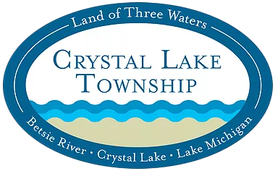FIREWORKSCRYSTAL LAKE TOWNSHIP FIREWORKS ORDINANCE:
In a nutshell, TOWNSHIP LAW provides that legal, consumer-grade fireworks are allowed ONLY on safe burn (*see below) days and hours as follows:
STATE OF MICHIGAN FIREWORKS LAW: State Law regulates fireworks on ALL DAYS OF THE YEAR in the following ways:
State of Michigan and/or by the State Fire Marshall, regardless of how it is labeled; B. commercial grade (without a state license); C. homemade explosives; SAFETY IS PARAMONT: WHICH KINDS OF FIREWORKS ARE LEGAL? Some commercially sold fireworks, such as the Agent of Doom, are especially dangerous and have been deemed illegal. Such items should be returned to the seller and never ignited. Click here for more information. Click here to report illegal fireworks sales. 
|

Fireworks, sparklers, and firecrackers are not allowed within our National Lakeshore. Celebrate by witnessing nature's natural light display at Sleeping Bear Dunes. Click here for more on Sleeping Bear's prohibition. 
A BOLD NEW FUTURE? CONSIDER HAVING NO FIREWORKS AS PROGRESSIVE STEP TO CLEANER ENVIRONMENT: At the Michigan Climate Action Network (MiCAN), just one of many local environmental groups, they envision a firework-free 4th of July. They say that's because fireworks cause unnecessary pollution to our water and air, not to mention to terra firma itself with all the litter we see in our parks and beaches the following days. The Crystal Lake Watershed Association, another notable local environmental organization, concurs and goes even further to advise in their Summer 2022 newsletter, "Control Your Fireworks! The CLWA urges all those around Crystal Lake to prevent fireworks debris from entering the lake and not to leave it along the shoreline where it can be washed into the water. Fireworks contain numerous chemicals and heavy metals and form additional ones when they are ignited. The fumes they create also contain sulfur, nitric acid and ozone which may precipitate onto the lake surface. Does your family want to swim in the shallow water where these substances have recently landed? Michigan state law and local ordinances regulate the days on which consumer fireworks can be ignited, the types that may be displayed without a permit, and forbid their use on public property (including public beaches). Please follow these guidelines for a safe and healthy summer!" QUICK ANSWERS TO YOUR QUESTIONS: What kind of fireworks are allowed without a state license? WHEN can I set my fireworks off? WHERE can I ignite my fireworks? How can I keep everyone safe around fireworks? It’s very dry in northern Michigan. Does that raise concerns about fireworks? What about parties and fireworks? My pet goes nuts when my neighbors set off fireworks. What can I do? How can I enjoy at-home fireworks while respecting neighbors who are sensitive to them? What kind of fireworks can I buy in Michigan? Can anyone buy them? Where can I buy fireworks in Michigan? What about buying fireworks in Ohio or Indiana? GENERAL BACKGROUND ON HOW THE CURRENT STATE LAW CAME TO BE: In the years 2013-2018, Michiganders endured legally sanctioned fireworks exploding in their neighborhoods for up to 30 days each year. Despite the restriction to only about a month's worth of specified days throughout any given year, pet owners and parents, veterans and Independence Day revelers, still complained that the noise scared their dogs and woke their sleeping children, caused pollution of water, air and land, and was downright dangerous. For example, right here at home, one of our CLT residents, a former combat soldier who was medically diagnosed with PSD, had seriously adverse reactions to the local fireworks. Veterans and non-veterans alike throughout the state were bothered enough to pressure the legislature for further reform. As a result, the law provided some additional relief; House Bills 5939 and 5941 are now Public Acts 633, 634 and 635 as of 2018. This package of bills passed by the legislature further limited the number of days where fireworks displays could not be restricted by smaller government entities. That's where Michigan law still stands. |
1651 Frankfort Highway | PO Box 2129 | Frankfort, MI 49635
Phone: (231) 352-9791 | Fax: (231) 352-6689
© Copyright 2024 Crystal Lake Township
Phone: (231) 352-9791 | Fax: (231) 352-6689
© Copyright 2024 Crystal Lake Township
